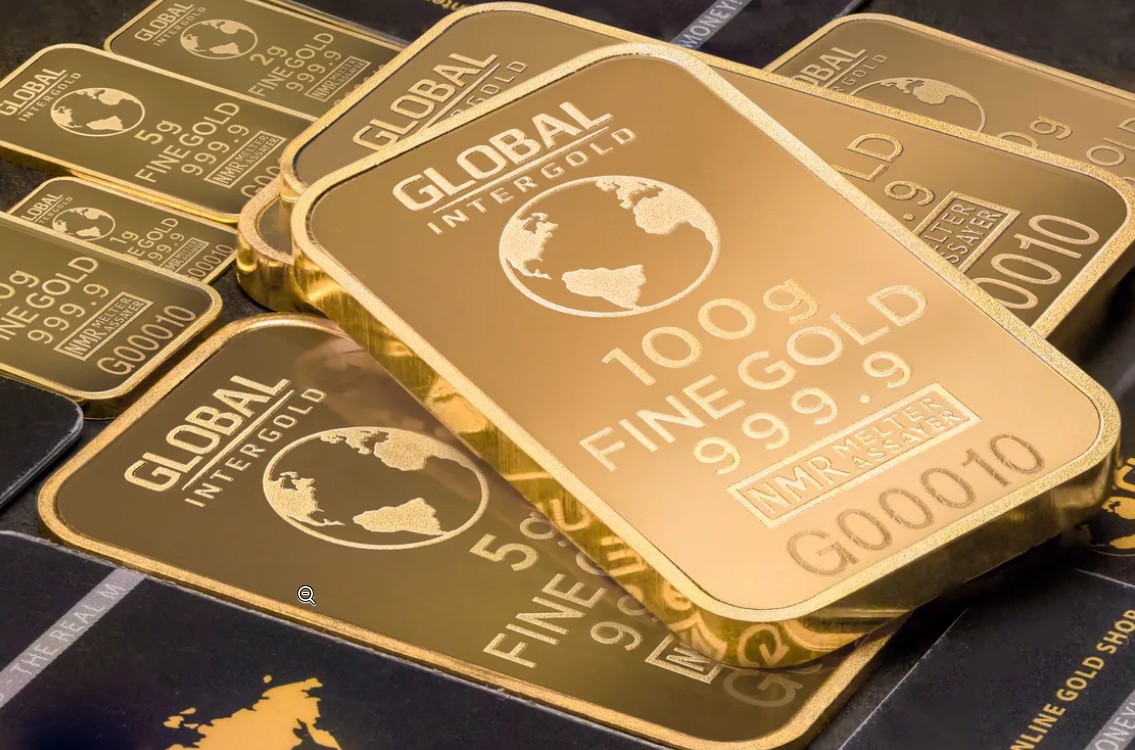Are you awake to see opportunities?
Why is it that some people have the knack to see an opportunity and seize it, and others just watch them pass by?
I’m sure, by now, you are over 2020. Between COVID, Climate Change and now the weirdest presidential election I’ve ever seen in my live, I think most of us just want to brush aside 2020 and move on to better days. We cry out for stability and that we can start to see things clearly, but so many obstacles stand in our way. In this article I’m going to give you some basic ideas on how to find stability for your investments in this highly chaotic world we find ourselves in, so that you can see things a bit clearer than everyone else.

It is naive of us to think that investing is anything other than predicting the future. Soothsayers have been claiming to do that since the dawn of time, and rarely do they get it right. But when it comes to human behavior, our species can be relatively predictable - at least over the long term.
So when faced with a time of chaos, I try and detach myself from the day to day skirmishes and look to the overall war we are trying to win. That means to look for general patterns, and position oneself ahead of the coming wave. My writings on investing like a surfer have been around for a while, and these might be the times you want to re-aquaint yourself with that.
Is it harder today to predict the future of humanity than it was a year or two ago? Actually no. In fact it may be easier. The main reason is that we are social animals and we crave what is selfish to us all, and our use of money is the ultimate form of selfishness. You keep your money close to your chest and you only give it out when you seek some benefit from doing that. We call that “economics” but really it is about individual survival and participation in the modern world.
2020 has been a particularly chaotic time. Yes, politics is a circus but it has always been a circus. It is just that in today’s world, that circus can be brought to you with immediate messaging thanks to the Internet. It doesn’t take much to become a citizen journalist, or a citizen speculator or a citizen wise man. In fact, it also doesn’t take much to be a citizen troll either. Whatever the psychological needs of the content creator, the fact is that you are receiving more distractions per minute today than you have ever been subjected to before. To find any form of peace & solace means detaching from the distractions. And since they are presented in ways to feed your mental needs for validation & stimulation, it takes a strong character to detach from them.
So what’s going on if you detach from the distractions? What can be relied on for the long term that forms as basic construct of a rational investment strategy and what are the key factors that I look for in my investments?
If you start with the most raw ingredient in a good investment, it has to be based on a some measurement that is stable and not subject to fluctuation. Whereas the foundation of math typically is the decimal system, since we have 10 fingers on our hands and more likely that won’t change to 11 anytime soon, we can find some level of acceptance that 2+2 is 4 and anyone who tries to tell you otherwise can easily be discredited.
The same is true of money. If you have a coin and it is worth $1000 one day, and you wake up the next (through no fault of your own) and it is worth $950, then you have a problem. Your form of measurement is bad. And that is the world of currency by decree (or “Fiat currency” as they like to call it). Each country has a currency that is compared with each other, and you value your wealth based on some floating measurement.

Ultimately understanding money is about understanding the buying power or value of something and if your very measurement protocol is fluctuating, you can’t see the truth of value. And that’s the underlying problem with economics today. No one actually knows what something is worth, and it is highly speculative. If you ask Donald Trump, for example, what he is worth, he will give you a number that is 50x different to what a bank might tell you he is worth. But if both are telling you that value in $USD, how can you be sure what that actually means?
We don’t have currencies that are tied to a base that isn’t likely to change, so everyone is trying to maintain their balance in a sea of choppy water, with nothing to really grab onto. That’s not healthy and that is the underlying reason why traditional investments (like the stock market, real estate, etc.) are all flawed as valuations move up and down because of what they are measured in - not because the thing being valued is worth any more or less at the time.
Therefore before any investment can be measured for its value (unless you have something that is going to show 10x the return on it), it must first be measured using some form or scale that is not subject to fluctuation. Good luck finding that, but if you do, I’m all ears.
The value of anything is based on the perception of the person that wants to buy it. It is that simple. If you have something popular and there isn’t a lot of them around, you can ask a lot of money for it. Consider the value of Sotheby Auctions of rare art. People are willing to pay millions and millions for something they perceive to be rare. We call this “price discovery” and it is core to determining value, since value is a human perception anyway.

We need to know that we are participating in a market that is not being manipulated. That means that there is clear identification of what an asset is worth based on an honest accounting of what people will pay for it. That means we need records of what people have paid for like items in a similar time frame, to determine value. This is why real estate is often priced by “comps” or comparative pricing of similar properties in similar areas. If the market is “up” as they say, it just means that people perceive the value of the real estate to be higher than in times when they are not rushing to buy it.
That means that there are two key drivers here: The popularity of something, and the access to liquid funds to acquire it. If real estate is a super popular investment but no one has any money to buy it and banks won’t give that money out easily, then the price of the real estate will drop. But if the banks are issuing money with little impedance, and people are rushing into the market to buy property, you get massive price upward momentum.
Over time, of course, the human desire for something rises and falls and with that the pricing of the asset changes too. A sound investment would be to buy something when humans hate it, and sell it when humans have access to liquid funds and have a desire to buy it.
Another important factor is whether the size of the marketplace that wants to buy the asset is growing or shrinking. There are over 8 billion humanoids on this planet, and as more of them enter the middle class, they want to take their surplus wealth and invest it in things. For some, it may be simply their own stability for their family by way of a house & land. For others it may be to pay off debt that they have incurred. And for many, they might want to buy stocks & bonds. If the marketplace is larger, the demand is larger. Even for an asset that is not considered popular, if you increase the number of buyers or participants in something, then you get a higher valuation for it.

How do you increase popularity? Marketing, spin, “go viral”, etc. will do it with an entrenched audience. The other way is to open your asset to a larger marketplace. For example, a global vs. a local market. Despite the fact that the USA has 4% of the world’s population, it has most of the economy of the world. Anyone can see that this can’t last forever. If 96% of the world do not live in the USA, they will build their own economies eventually and reduce the reliance on a single point of failure, particularly if that point of failure is outwardly demonstrating it is not stable and looking more precarious.
Of course the world is full of diverse human cultures and those cultures have differing opinions on what they favor and what they don’t. To understand those cultures, one must be willing to go to them and see what a day in the life looks like. For anyone that is willing to roam and seek out opportunities with their own eyes, this could be a renaissance time for global investors free to do that.
This is a big one. There is no value in something unless it delivers some benefit. Real estate, for example, provides shelter - a basic human physiological need. Food provides survival, as does clean water & clean air. Medical services, whether they are emergency or elective, extends human life. Communications assists our species need for socialization, particularly over larger geographic areas.
The one other thing we humans have going for us is that we are tool makers. Unlike any other species we can invent technologies that assist us and help us to solve a problem. Those technologies become enormously popular, and consequently being a part of the invention of something that solves a real world problem that everyone discovers, can be a key part of generation of wealth. As more people discover such a thing, they rush towards it. Often in such numbers that the perceived value of that thing skyrockets. Being ahead of that popular curve is a basic rule in investing, particularly for those that embrace the surfer mentality to investing.
If you got in early on, let’s say, Coca-Cola, today you would be a billionaire. But how many other competing soft drink products were out there at the time, that died a natural death in terms of being a going concern? Picking the winner in a sea of options can be difficult.
The question is are you looking for some quick gains and then get out? Or is your investment designed to be very long time horizons? It is harder to predict how the world will look in 2041 vs. 2021, and the returns are likely to reflect that. But you can look at all options against the basic rules of asset value perception, and factor in some form of time into the equation. You have to punt on whether you believe the asset will be worth more or less over time and define your investment time frame accordingly.

But with this said, I have to repeat the first (and probably most important) factor here and that is that your form of value measurement is not fluctuating. If you bought Coca-Cola shares for $1 in 1920, and today they are worth $100, that’s great. Feels good, right? I mean 100x your original investment.
But let’s look at the value of $1 over that same time period, and you can see that the value of the currency has dropped to about 3% of its original value. In that light, your $100 shares are actually worth $3 and therefore your investment went from $1 to $3 in value. Is that any form of a decent return over 100 years?
That’s not something I can tell you. You have to do your own homework. However you can use the above items as some parts of a trade off study.
List all of your investment opportunities down the Y-Axis of a grid. Things like Fine Art, Precious Metals, Real estate, Stocks, Bonds, Crypto Currency, Forex, Commodities, etc. Whatever you feel is an option.
Across the X-Axis of the grid, put each of these measuring points and give each one a score out of 10, with the exception of Time Frame.
Time frame is going to give you multiple grids. One for 12 months, one for 5 years, and one for 20 years. You can rate each one in light of the factors.
In fact, add your own factors to the list. Things like your desirability to the investment, if it serves the community in a way you want it to, etc. Maybe they are factors that suit your own politics or ideology. Other things like how liquid is the investment, in case you have to get out fast. Those things determine some desirability.
Look if this was simple, everyone would be a billionaire. But my point about doing this is to take you out of the day to day chaos that you perceive is consuming you. I can tell you that if you rise above it all and think, you will realize that it is all man-made fiction. None of that chaos is actually consuming you. That is why the rich are getting richer and the poor getting poorer. Do you think that the rich have the time to waste on watching mainstream news media salivating over politics, or sit on their phones all day reading their Facebook or Twitter feeds? Do they get influenced by Tik Tok or other social media influencers?
Nope. They (generally) have a far more balanced view of what is going on in the world, and they punt on where to put their money using some logical and rational framework such as what I’m suggesting here.
Because in a world of chaos, you can’t argue math.